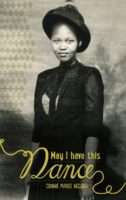Because we no longer learn by oral tradition, we are losing important knowledge about many of our cultural practices. The best way to preserve this knowledge is to write down those processes that are important to us and we would like to maintain, both for our own use and for the benefit of future generations. For example, what is the imbeleko ceremony, and how is it done? Why and how is the ten-day reclusion period, ukubasefukwini, observed? And what is the ritual to accept a bride into her new home? In a society where increasing tribalism is dividing the country, it might even help prevent further division in future by providing a written, definitive reference as to how certain traditional practices are carried out.
An issue I have seen many people struggle with, and one that I myself had to manage with care, is how to balance one’s professional and cultural life. Traditional and professional roles are often in direct conflict with each other, leaving young people – especially young women and mothers – with the feeling that they have to choose one or the other.
Let’s describe this person, the woman facing this conflict: she is a working mother, highly educated and skilled, a powerful corporate executive, entrepreneur or a recognised expert in her field. She is aspirational and sophisticated, classy and feminine. She works hard to be successful in different areas in her life. She knows that the best thing that she can do for herself and her family is to be the working person, wife and mother that she is.
At the same time, she is an African woman, an African mother. She is expected to be a good African wife who prepares and serves her
husband and children’s meals and meets all their other domestic needs. She is expected to raise her own children and carefully nurture strong connections with the greater family and clan. Especially when she first becomes a wife, she is expected to prepare and serve the food, make tea and otherwise convincingly take the role of being a good makoti – often without fully understanding what her husband’s family expects of her, especially if she herself doesn’t come from a very traditional background.
How does this woman bridge the gap between the sophisticated, powerful businessperson she is in her professional life and the African woman married into a traditional family in her private life? It may be tempting to disregard the traditional ways altogether, but in the long term, that would only result in strife with, and isolation from, the greater family. It has been my sad experience to see family members at loggerheads regarding traditional rituals like the way we bury our dead, which has been so coloured by western culture that it would seem we are denying our roots. Yes, culture is an object of change. We may tweak things here and there, but we shouldn’t throw away the fundamentals. At the end of the day, we may live in the suburbs but we are still Africans. We should uphold our traditions and culture as much as we can.
“Mamkhulu is a true mother, a nurturer, a caregiver. Her warmth and compassion is felt through generations that have benefited from her wisdom and comfort. I am grateful to have had Mamkhulu in my life, and for everything she taught me as a young lady: to be a leader and never a follower, to stay true to myself, my culture and my family principles. May God continue to bless her with more years with us.”
– Hlathikazi Beni, grand-niece
I believe that openness and mutual communication is the only way to overcome these tensions and conflicts. Young professional women should try not to disregard traditional ways out of hand – they have their place, they are the glue that keeps extended families and clans together.
At the same time, older matriarchs need to realise that young women live in a very different world to the one they grew up in. They might not immediately know what is expected of them when they marry into a traditional family. So, rather than confront a new makoti for not wearing a headscarf or coming to a funeral with lots of make-up and a short skirt, they should identify a time to sit down with her and talk her through the various processes and practices of her new extended family. As a woman coming into her husband’s family, it will be her responsibility to pass these cultural values and norms on to her children and their spouses one day. She will not be able to do this without help.
***
Tell us: What are your thoughts on Connie Ngcaba’s balancing professionalism and traditionalism?


